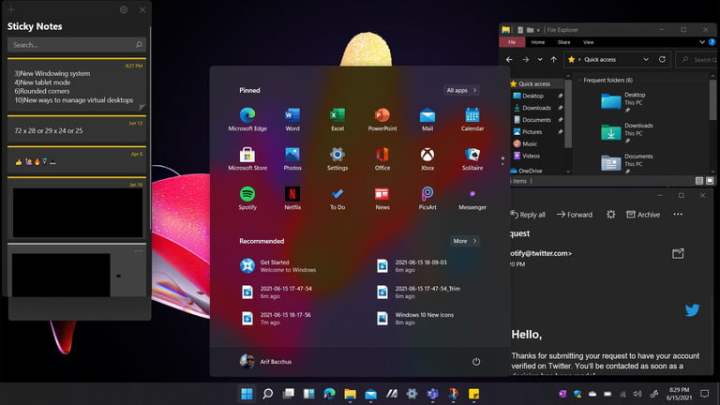A preview build of Windows 11 was recently leaked, and many of its features are still being discovered. While the official release is set to be unveiled on June 24, the leaked version hints at several major changes that give us an idea of what the new update will look like. There are some changes that the public strongly disliked and some that are hinting at potential new hardware.
Wake on Touch is one of the new features, allowing users to wake their tablets from sleep mode simply by tapping on its display, just like we have seen on iPads, Android tablets, and many other mobile devices. A number of phones also sport features similar to this, where you can double-tap the device’s display to wake it up from standby mode. This feature makes use of capacitive touch, which requires the user to complete its circuit by touching the screen.
Looks like Windows 11 supports a setting for Wake on Touch
Feels very phone-like— Albacore (@thebookisclosed) June 16, 2021
Twitter account @thebookisclosed was the first to discover this feature, also remarking that it “feels very phone-like.” While we have to wait a little to check out the actual feature, we can confirm its presence given a Wake on Touch option hidden in the settings of the leaked version.

However, Microsoft’s current hardware is unable to support this feature; its current lineup of touch-enabled tablets does not host any such feature. This means they require special components that would allow the screen to light up upon human contact. Hence, the discovery also suggests another exciting theory of new hardware coming out around the same time as the new Windows.
Rumors suggest the potential release of a Surface Pro 8 or Surface Neo. While the latter’s release is delayed to 2022, the former may be announced in October, which is around the same time Windows 11 is launching. If the theories about the Surface Pro 8 leveraging the newly-founded feature are correct, this upgrade could be the biggest update to Surface Pro’s hardware since its 2014 Pro 4 version.
At the end of the day, all that is being said right now are conclusions based on hints gathered from the build version. We’ll have to wait for June 24 to see what the update really offers.
Editors' Recommendations
- Windows 11 might nag you about AI requirements soon
- You’re going to hate the latest change to Windows 11
- Windows 11 tips and tricks: 8 hidden settings you need to try
- Beware! The latest Windows 11 update might crash your PC
- Microsoft’s next event could reveal the Surface Pro we’ve been waiting for



